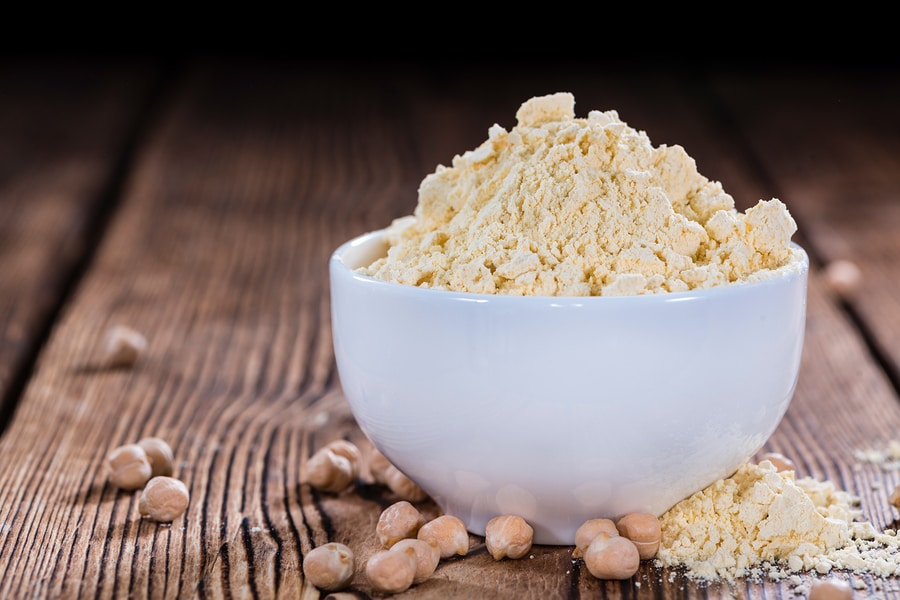Whether you're looking for egg substitutes because you're allergic, you're vegan, or you simply don't have any eggs on hand, there are plenty of ingredients to choose from. Some popular egg substitutes that are used mostly in baked goods are flax seeds, chia seeds, chickpea flour, and mashed fruits, such as banana, applesauce, or pureed prunes. In savory dishes, you can use tomato sauce, blended tofu, mashed potatoes, or moistened bread crumbs. While you may think you're losing out on nutritional value by removing eggs from the recipe, the following substitutes are easy to use and can add a number of health-promoting nutrients to your meals:
-
Prunes
Prunes, also known as dried plums, are high in fiber, vitamin A, vitamin K, riboflavin, niacin, vitamin B6, magnesium, potassium, and manganese. Prunes are quite sweet, so when you use them in baking as an egg replacement, you can reduce the amount of sweetener called for in the recipe. The advantage of using prunes to sweeten baked goods is that they are low-glycemic and don't spike blood sugar like many other sweeteners. Keep in mind that adding pureed prunes might change the flavor and color of what you're baking.
To replace one egg, use one-fourth cup of pureed prunes. Using mashed fruits instead of eggs usually results in a heavier baked good, so it's a good idea to add an extra half teaspoon of baking powder for each egg omitted from the recipe. When shopping for prunes, make sure they don't have any added ingredients, such as sugar or corn syrup. And although dried fruits don't spoil very fast, it's better to store prunes in the fridge after you open the package.
-
Chia Seeds
Chia seeds are high in fiber, protein, calcium, manganese, and phosphorous. They also provide more omega-3 fatty acids than even fortified eggs. When combined with water, chia seeds will gelatinize and form a substance that's similar in consistency to beaten eggs. Chia seeds don't have much taste on their own and won't change the flavor of a baked good. To use them as an egg substitute, grind half a tablespoon of chia seeds in a coffee grinder, add three tablespoons of warm water, stir the mixture well, and let it soak for 15 minutes.
You can buy white or black chia seeds, so if the color of what you're making is important to you, you're probably better off going with white seeds. Otherwise, the two are the same. Chia seed meal is also available for purchase, but it's better to buy whole chia seeds because they have a much longer shelf life. If stored in the fridge, chia seeds can last for over four years.
-
Chickpea Flour
Chickpea flour, also known as besan, garbanzo bean flour, or gram flour, is a flour made from chickpeas. It's quite a nutritional powerhouse high in protein, thiamine, vitamin B6, folate, iron, magnesium, phosphorus, potassium, zinc, copper, and manganese. In addition, it's also a good source of fiber, which eggs don't offer. Chickpea flour can be used as an egg substitute in baking, as well as in recipes where eggs are the main ingredient. To substitute one egg in a baking recipe, add one-fourth cup of chickpea flour to the dry ingredients and one-fourth cup of water to the liquids. If you want to try an omelet, frittata, or French toast made using chickpea flour, look for recipes online or in cookbooks.
Chickpea flour is available at most grocery stores and can also be found in ethnic or health food stores. If you have a powerful blender, you can also make it yourself by grinding dried chickpeas. Chickpea flour is very inexpensive and is perfect if you're looking for a budget-friendly egg substitute.
Although not all egg substitutes work equally well in every recipe, and some recipes simply can't be recreated without using eggs, most recipes can be adapted quite successfully. The best way to find out which egg substitute works best for your favorite recipe is to get into the kitchen and start experimenting.

